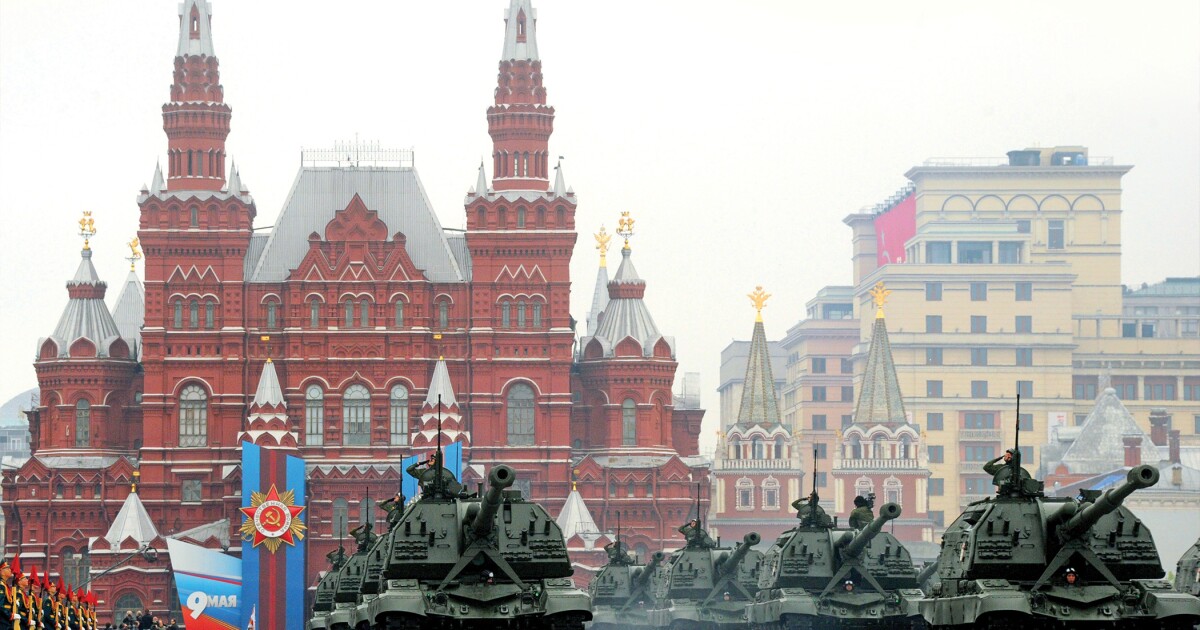

It was a chilling threat from the embattled leader of the nation with the world’s largest nuclear arsenal: Attack any territory I claim as Russian, and all bets are off.
“In the event of a threat to the territorial integrity of our country and to defend Russia and our people, we will certainly make use of all weapon systems available to us,” said President Vladimir Putin in a televised address to the Russian people on Sept. 21.
“This is not a bluff,” Putin added ominously. “Our independence and freedom will be defended — I repeat — by all the systems available to us.”
Putin grossly miscalculated when he launched his invasion of Ukraine seven months ago.
The question now is whether he might blunder again if the United States and its Western allies ignore his rodomontade, prompting the first use of a nuclear weapon in combat in 77 years.
Putin has wielded the nuclear threat before, notably at the start of the war, when he declared Ukraine was “our historical land,” which was becoming “a hostile ‘anti-Russia’” territory that posed “a very real threat … to the very existence of our state.”
That is language consistent with a decree signed by Putin in June 2020 that explicitly states Russia reserves the right to use nuclear weapons in response to conventional warfare “when the very existence of the state is in jeopardy.”
By illegally annexing more of Ukraine under the guise of rigged “sham” referenda, Putin is upping the ante under what the U.S. has labeled Russia’s dangerous “escalate to de-escalate” doctrine, which the 2018 U.S. Nuclear Posture Review says “mistakenly assesses that the threat of nuclear escalation or actual first use of nuclear weapons would serve to ‘de-escalate’ a conflict on terms favorable to Russia.”
“Russians are calculating that they could hit, say, a Ukrainian military site or airport or port and hundreds are killed, but it’s a low-yield weapon, so there’s extensive damage and it shocks the world, but it’s not catastrophic — it’s not Hiroshima,” said Joe Cirincione, a national security analyst and former president of the Ploughshares Fund.
“The thinking is that this would demonstrate Russian seriousness, like a poker game where you call the hand and expect the other side to fold,” Cirincione said.
But Cirincione and many other analysts argue that rather than fold, the U.S. and the West would be compelled to raise the stakes while trying to avoid a cycle of escalation.
“[Putin] would use the nuclear weapon and want to end the war, and that’s not going to happen,” said retired Gen. Jack Keane, former Army vice chief of staff and current Fox News analyst.
“The Ukrainians, the people, as well as their military, are steadfast. They openly talk about the possibility of a nuclear weapon being targeted against them, and they are going to fight and continue to fight,” he added.
The Biden administration appears to be following the advice of experts in nuclear de-escalation theory who say the best way to dissuade Putin from following through on his threat is to make clear the consequences would be dire while not committing to a tit-for-tat nuclear response.
“A vague threat, such as ‘Russia’s decision to use nuclear weapons in Ukraine would risk the gravest possible consequences,’ has the benefit of conveying to Russia that there would be repercussions for nuclear use without committing the United States to a particular course of action,” writes Matthew Kroenig, acting director of the Atlantic Council’s Scowcroft Center for Strategy and Security, in a Memo to the President.
“A more specific threat, such as ‘It shall be the policy of this nation to regard any nuclear attack against Ukraine as an attack on the United States, requiring a full retaliatory response,’ would have greater deterrent value but limit U.S. flexibility,” he continues.
“We have communicated directly, privately, at very high levels to the Kremlin that any use of nuclear weapons will be met with catastrophic consequences for Russia, that the United States and our allies will respond decisively,” said White House national security adviser Jake Sullivan as he made the rounds of network Sunday shows a few days after Putin’s threat.
In his CBS 60 Minutes interview, President Joe Biden said any use of nuclear weapons by Russia would result in a “consequential” response from the U.S.
“They’ll become more of a pariah in the world than they ever have been,” Biden said. “And depending on the extent of what they do will determine what response would occur.”
“It’s very important that Moscow hear from us and know from us that the consequences would be horrific, and we’ve made that very clear,” Secretary of State Antony Blinken told 60 Minutes in an interview the following week.
No one knows if Putin is desperate enough to resort to nuclear weapons, especially if he sees no way to prevail in a war he is losing but believes he must win.
The Pentagon has been war-gaming various nuclear options Putin might try, from a “demonstration” airburst blast over the Black Sea to a tactical strike on a military base or even an attack on a population center.
Each would provoke a different recommended option for Biden, but all would almost certainly mean Putin would face a devastating response by America’s far superior military forces.
“I hope we’re very direct with him about what their consequences would mean. I think that’s likely an expansion of the war. It brings the United States and NATO into it,” said Keane.
“There are conventional responses to a Russian nuclear strike. You don’t have to respond in kind,” argues Cirincione. “We have sufficient precision, powerful, conventional weapons that could take out high-value targets in Ukraine and even Russia without resorting to nuclear.”
“We would conduct devastating air and missile attack, largely to destroy his military, inside of Ukraine. He knows that and so does his military people know that,” predicts Keane, who thinks the probability of Putin using a nuke is low. “He wants to win the war. If he uses a nuclear weapon, it guarantees that he loses.”
The U.S. continues to say it has seen no sign Moscow is moving any of its low-yield weapons into a position where they could be employed, and Russia’s ragtag military lacks basic supplies such as sleeping bags, first-aid kits, and ammunition, much less the kind of gear required to fight a nuclear war.
“His army on the battlefield, they’re not trained to deal with a radioactive nuclear battlefield,” said Keane on Fox News Sunday. “The Soviet Union was. They were equipped and properly trained. These guys aren’t trained to fight a conventional fight, much less deal with an environment like that.”
Cirincione also argues Putin would likely face immediate global isolation if he breaks the taboo against using nuclear weapons. “Even China and India would completely distance themselves from this. You could imagine the borders being closed around Russia, you know — complete isolation and international condemnation,” he says.
“So, you’ve got to base your strategy on the assumption that he still has a sense of self-preservation, that he’s not so crazy that he’s willing to commit suicide,” Cirincione says. “And if that’s wrong, if he’s crazier than we all think, well then, we’re f***ed.”
Jamie McIntyre is the Washington Examiner’s senior writer on defense and national security. His morning newsletter, “Jamie McIntyre’s Daily on Defense,” is free and available by email subscription at dailyondefense.com.







